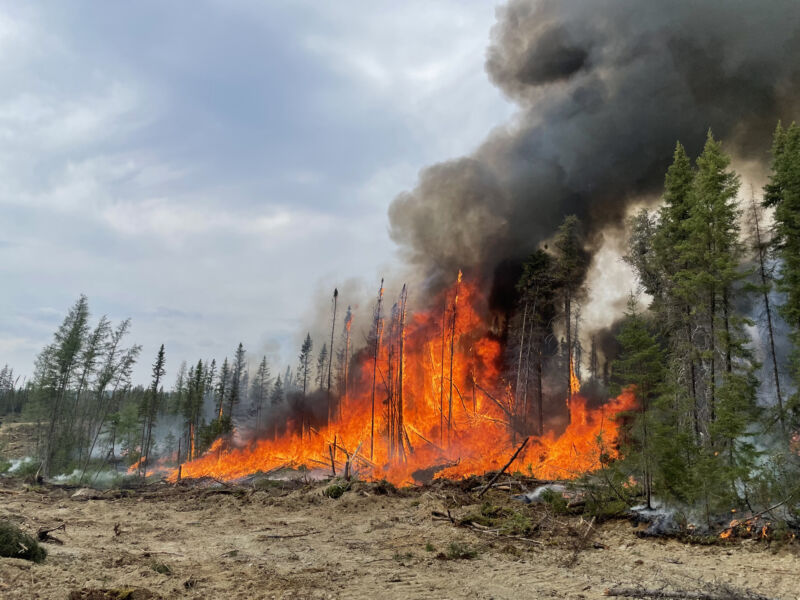June extremes suggest parts of climate system are reaching tipping points

Enlarge / A view of wildfires at Lebel-sur-Quevillon in Quebec, Canada on June 23, 2023. (credit: REDERIC CHOUINARD /SOPFEU / Handout/Anadolu Agency via Getty Images)
This article originally appeared on Inside Climate News, a nonprofit, independent news organization that covers climate, energy, and the environment. It is republished with permission. Sign up for their newsletter here.
June 2023 may be remembered as the start of a big change in the climate system, with many key global indicators flashing red warning lights amid signs that some systems are tipping toward a new state from which they may not recover.
Earth's critical reflective polar ice caps are at their lowest extent on record in the satellite era, with the sea ice around Antarctica at a record-low extent by far, spurring worried scientists to share dramatic charts of the missing ice repeatedly. In the Arctic, the month ended with the Greenland Ice Sheet experiencing one of the largest June melt events ever recorded, and with scientists reporting that June 2023 was the hottest June ever measured, breaking the 2019 record by a staggering" 0.16 Celsius.